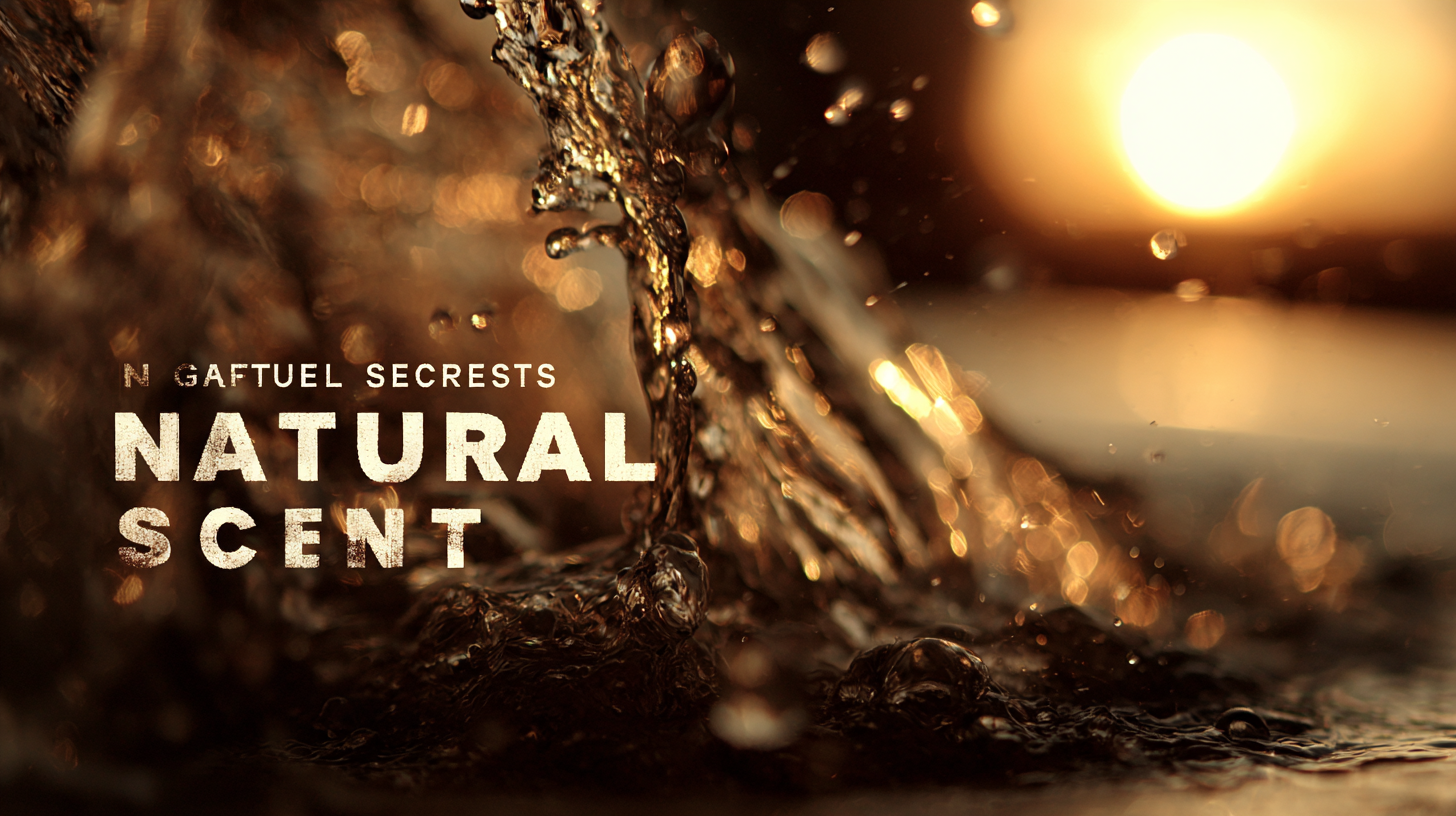
Unlocking the Secrets of the Best Natural Scent for Global Sourcing Success
In today's competitive global market, the pursuit of the best natural scent can significantly influence sourcing success across various product types. Understanding the unique characteristics and applications of different natural scents not only enhances product appeal but also aligns with consumer preferences for sustainability and authenticity. This blog delves into the intricate world of natural scents, exploring how they vary from aromatic herbs and essential oils to floral notes and plant extracts. We will provide insights into selecting the right natural scent for your product, ensuring that it resonates with your target audience and stands out among competitors. By unlocking the secrets behind these captivating fragrances, businesses can elevate their sourcing strategies and cultivate a deeper connection with consumers, leading to enduring success in a fast-paced global landscape.

Identifying the Unique Characteristics of High-Quality Natural Scents
When it comes to sourcing high-quality natural scents, understanding their unique characteristics is essential for achieving global success. First and foremost, the source of the fragrance plays a pivotal role. High-quality natural scents often originate from specific geographical regions known for their rich biodiversity. For instance, essential oils from the Mediterranean region are esteemed for their aromatic profiles due to the local climate and soil conditions that enhance the plants' aromatic compounds. Identifying these regions can provide a competitive edge in the marketplace.
Another crucial characteristic is the extraction method used to obtain the scent. Traditional methods such as steam distillation or cold pressing often yield purer and more vibrant fragrances compared to synthetic alternatives. Artisanal producers who prioritize sustainable and ethical practices tend to create superior scents that resonate with consumers increasingly concerned about environmental impact. Lastly, the complexity of a natural scent, encompassing top, middle, and base notes, adds depth and richness that synthetic fragrances often lack. Understanding these elements is vital for businesses aiming to curate a collection that captivates consumers and stands out in a saturated market.
Unlocking the Secrets of High-Quality Natural Scents
This chart illustrates the unique characteristics of high-quality natural scents sourced globally. The data represents the various attributes that contribute to the perception of quality in natural fragrances, sourced from diverse regions. The metrics include Aromatic Complexity, Lasting Power, and Allergen Content, which are crucial for quality assessment.
Evaluating Manufacturers: Key Criteria for Sourcing Success
 When it comes to global sourcing, evaluating manufacturers is a critical step that can determine the success of your supply chain. A recent report by McKinsey highlights that companies that invest in thorough supplier evaluations can boost efficiency by up to 30%. This underscores the importance of establishing key criteria, such as production capacity, quality assurance practices, and reliability in delivery. Assessing these factors can help businesses identify suppliers who not only meet their needs but also align with long-term strategic goals.
When it comes to global sourcing, evaluating manufacturers is a critical step that can determine the success of your supply chain. A recent report by McKinsey highlights that companies that invest in thorough supplier evaluations can boost efficiency by up to 30%. This underscores the importance of establishing key criteria, such as production capacity, quality assurance practices, and reliability in delivery. Assessing these factors can help businesses identify suppliers who not only meet their needs but also align with long-term strategic goals.
Tip: Always request samples and conduct factory visits before finalizing any contracts. This allows you to evaluate the actual production capabilities and quality standards of prospective suppliers firsthand.
Another essential criterion is the manufacturer's compliance with industry regulations and standards. According to a study by Deloitte, non-compliance can lead to financial losses averaging around 10% of a business's operational budget. Ensuring that your suppliers adhere to the necessary regulations not only safeguards your brand’s reputation but also enhances your product's marketability.
Tip: Implement a comprehensive audit process to verify the compliance of potential suppliers, which can be a game-changer in your sourcing strategy. This proactive approach minimizes risks and fosters a solid partnership with suppliers committed to quality and compliance.
Building Sustainable Relationships with Natural Scent Producers
Building sustainable relationships with natural scent producers is essential for global sourcing success. In an industry increasingly focused on sustainability and ethical practices, it’s vital to establish connections with suppliers who prioritize eco-friendly farming methods and fair trade principles. By collaborating with producers who share these values, businesses can ensure the authenticity and quality of their fragrance offerings while also supporting communities involved in the production process.
Engaging with natural scent producers goes beyond mere transactional relationships; it involves fostering mutual understanding and trust. By spending time with producers and learning about their methods, businesses can gain insights into the unique qualities of various natural ingredients. This not only helps in sourcing the best scents but can also inspire innovation in product development. Furthermore, by investing in the lives and environments of these producers, brands can create a positive impact that resonates with conscious consumers seeking to make responsible choices in their purchases.
Navigating the Global Market: Trends in Natural Fragrance Sourcing
In recent years, the global market for natural fragrances has shown impressive growth, driven by increasing consumer awareness and preferences for clean-label products. Among these, the CIS-3-HEXEN-1-OL market is predicted to experience a stable compound annual growth rate (CAGR) of 6.6%, climbing from a valuation of $2.219 million in 2033 to $1.331 million by 2025. This growth reflects a broader trend in natural fragrance sourcing, where location, quality, and sustainability are becoming essential factors for manufacturers.
Moreover, the vanillin market is projected to grow significantly, with estimated revenues reaching $712 million in 2023 and an anticipated CAGR of 8.37% from 2024 to 2031. Similarly, the egg yolk powder market is set for steady growth, with consumer demand for natural ingredients driving a CAGR of approximately 5.1% during the 2024-2032 period. As companies navigate the complex waters of global sourcing, understanding these trends not only helps in meeting consumer demands but also positions brands for success in an increasingly competitive market.
Ensuring Quality Control in Natural Scent Manufacturing Processes
Quality control is paramount in the manufacturing process of natural scents, especially for global sourcing success. The complexity of natural ingredients necessitates rigorous testing and standards to ensure consistency and safety. A comprehensive quality control framework begins with sourcing raw materials from reputable suppliers who adhere to sustainable farming practices. Regular audits and certifications, such as ISO and organic certifications, can provide assurance that the ingredients meet the highest standards before they even enter the production facility.
Once the materials are sourced, the manufacturing process must incorporate stringent quality checks at various stages. This includes in-process testing for purity and potency, as well as final product testing to confirm that the scent profiles match specifications. Implementing a traceability system allows manufacturers to track each batch of raw materials through the production line, enabling fast identification of any issues that may arise. By cultivating a culture of quality—empowered by transparent practices and robust testing methodologies—companies can deliver exceptional natural scents that meet the expectations of consumers globally, fostering trust and loyalty in an increasingly competitive market.

